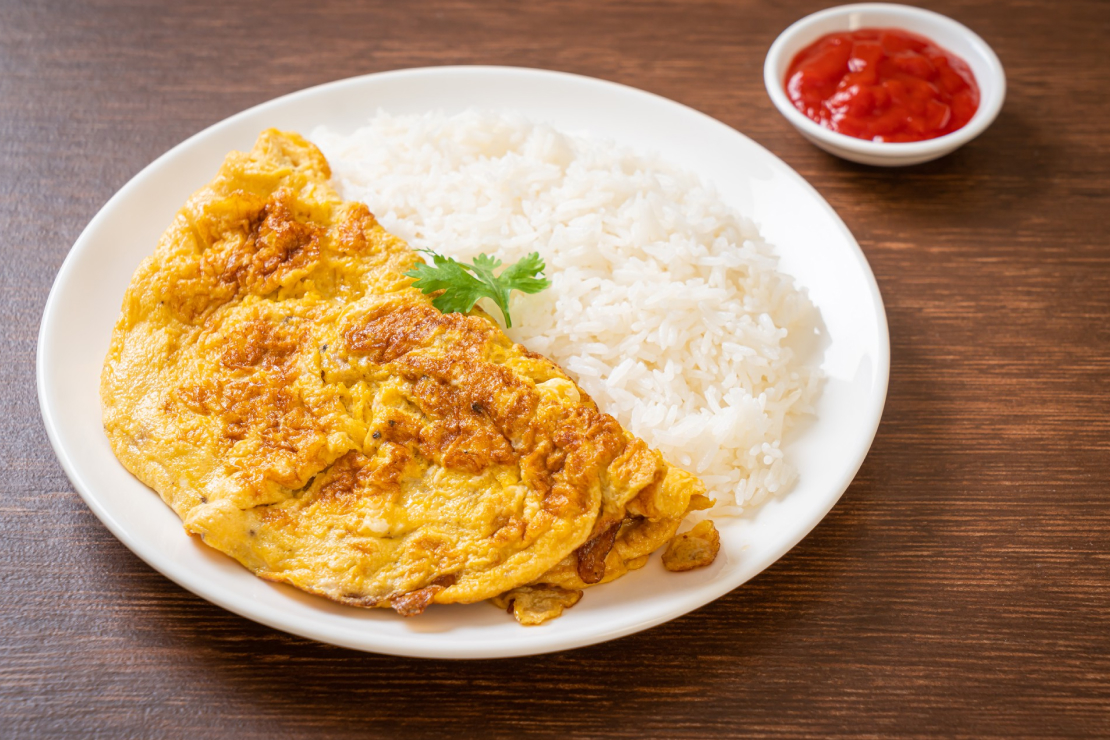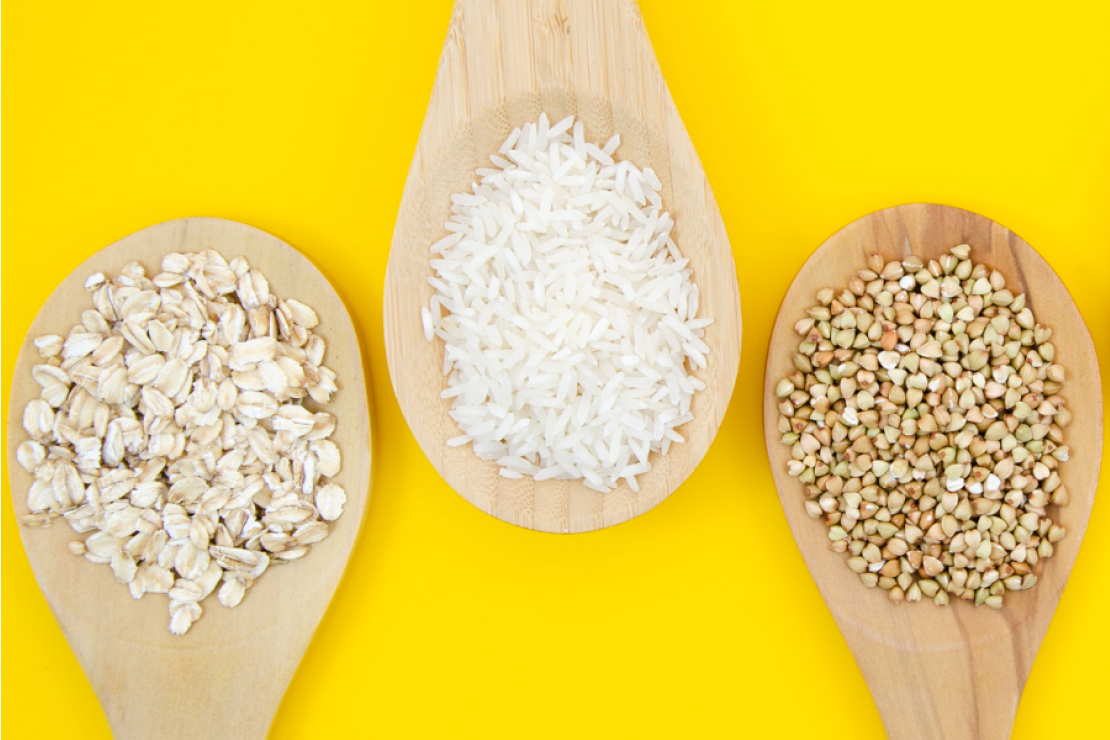Is It Bad to Eat Eggs with Rice Daily? A Look at Nutrient Pairing and Weight Goals
Explore the nutritional impact of eating eggs with rice daily. Understand how this common meal affects nutrient pairing, weight management, and overall health goals.

Table of Content
Introduction: The Everyday Pairing of Eggs and Rice
Eggs and rice, a staple in countless cuisines worldwide, often serve as a quick, affordable, and satisfying meal. From a simple fried egg on a bed of white rice to more elaborate dishes, this combination is a go-to for many. But if consumed daily, what is its true nutritional impact? Is it a balanced meal, or could it be detrimental to your health and weight goals in the long run? This article delves into the nutritional science behind this popular pairing, examining its benefits, potential drawbacks, and how to optimize it for your dietary needs.
Nutritional Profile of Eggs: A Powerhouse of Protein and Micronutrients
Eggs are often hailed as a "perfect protein" due to their complete amino acid profile and high bioavailability. They offer a wealth of essential nutrients crucial for various bodily functions.
| Nutrient (per large egg) | Amount | % Daily Value | Key Benefits |
|---|---|---|---|
| Calories | 72 kcal | 4% | Energy source |
| Protein | 6.3g | 13% | Muscle repair, satiety |
| Total Fat | 4.8g | 7% | Energy, hormone production |
| Vitamin D | 41 IU | 10% | Bone health, immune support |
| Vitamin B12 | 0.6 mcg | 25% | Energy metabolism, nerve function |
| Choline | 147mg | 27% | Brain health, liver function |
Key Benefits of Eggs:
- High-Quality Protein: Eggs provide all nine essential amino acids, making them excellent for muscle growth, repair, and overall body function.
- Healthy Fats: The fats in eggs, particularly in the yolk, are crucial for hormone production and the absorption of fat-soluble vitamins (A, D, E, K).
- Vitamins and Minerals: Rich in Vitamin D, B12, choline, selenium, and iron, eggs support bone health, energy production, brain function, and immune response.
- Satiety: The protein and fat content in eggs contribute to a feeling of fullness, which can help in appetite control.
Nutritional Profile of Rice: The Energy Provider
Rice is a primary source of carbohydrates globally, providing readily available energy. However, its nutritional value varies significantly between white and brown rice.
| Nutrient (per 100g cooked) | White Rice | Brown Rice | Key Differences |
|---|---|---|---|
| Calories | 130 kcal | 111 kcal | Similar caloric density |
| Carbohydrates | 28g | 23g | Brown rice has slightly less carbs due to fiber |
| Fiber | 0.4g | 1.8g | Brown rice retains bran and germ, offering more fiber |
| Protein | 2.7g | 2.6g | Similar protein content, but incomplete amino acid profile |
| Manganese | 0.1mg | 0.9mg | Brown rice is a good source of manganese |
| Magnesium | 12mg | 43mg | Brown rice offers significantly more magnesium |
Key Differences Between White and Brown Rice:
- Processing: White rice is refined, stripping away the bran and germ, which contain most of the fiber, vitamins, and minerals. Brown rice retains these layers.
- Fiber Content: Brown rice is a good source of dietary fiber, which aids digestion, promotes satiety, and helps regulate blood sugar. White rice has minimal fiber.
- Micronutrients: Brown rice is richer in magnesium, manganese, selenium, and B vitamins compared to white rice.
- Glycemic Index: White rice generally has a higher glycemic index (GI) than brown rice, meaning it can cause a faster and higher spike in blood sugar levels.
The Egg and Rice Combination: A Nutritional Synergy?
When combined, eggs and rice can create a meal that offers a good balance of macronutrients, especially if brown rice is chosen.
- Complementary Macronutrients: Eggs provide high-quality protein and healthy fats, while rice offers complex carbohydrates for energy. This combination ensures a sustained release of energy and helps keep you feeling full.
- Amino Acid Profile: While rice is an incomplete protein (lacking some essential amino acids), the complete protein in eggs can complement it, ensuring you get all necessary amino acids in one meal.
- Versatility: This pairing is incredibly versatile, allowing for various cooking methods and additions to enhance flavor and nutritional value.
Impact on Weight Goals: Loss, Gain, and Maintenance
The daily consumption of eggs and rice can support various weight goals, depending on portion sizes, type of rice, and overall dietary context.
For Weight Loss:
- Satiety: The protein and fiber (from brown rice) in this meal can significantly increase satiety, helping to reduce overall calorie intake throughout the day.
- Portion Control: Being mindful of rice portions is crucial. A large serving of white rice can quickly add up calories without providing much fiber to keep you full. Opting for brown rice can provide more bulk and nutrients for fewer calories.
- Metabolic Boost: Protein has a higher thermic effect of food (TEF) compared to carbohydrates and fats, meaning your body burns more calories digesting protein.
For Weight Gain/Muscle Building:
- Caloric Density: Eggs and rice can be a calorie-dense meal, especially with larger portions of rice and multiple eggs, making it suitable for those aiming for a caloric surplus.
- Protein for Muscle: The high-quality protein from eggs is essential for muscle protein synthesis, supporting muscle growth and repair, particularly when combined with resistance training.
- Carbohydrates for Energy: Rice provides the necessary carbohydrates to fuel intense workouts and replenish glycogen stores, which is vital for muscle building.
Potential Concerns of Daily Consumption
While eggs and rice can be a healthy meal, daily consumption without variety might lead to some nutritional imbalances.
- Nutrient Diversity: Relying solely on eggs and rice can lead to a lack of other essential vitamins, minerals, and phytonutrients found in a wider variety of foods, especially fruits and vegetables.
- Fiber Intake: If only white rice is consumed, the meal will be low in fiber, potentially leading to digestive issues like constipation and less stable blood sugar levels.
- Sodium and Cholesterol: While dietary cholesterol from eggs has less impact on blood cholesterol for most people than once thought, excessive sodium from preparation (e.g., soy sauce, processed additions) can be a concern.
- Caloric Overload: Without mindful portion control, especially with white rice and added oils, daily consumption can easily lead to a caloric surplus, hindering weight loss goals.
Optimizing Your Eggs and Rice Meal for Health
To make your daily eggs and rice meal as nutritious as possible, consider these enhancements:
- Choose Brown Rice: Swap white rice for brown rice to significantly boost fiber, magnesium, and other micronutrient intake.
- Add Vegetables: Incorporate a generous portion of colorful vegetables (e.g., spinach, broccoli, bell peppers, carrots) to add fiber, vitamins, minerals, and antioxidants.
- Healthy Cooking Methods: Opt for boiling, poaching, or scrambling eggs with minimal healthy oils (like olive or avocado oil) instead of frying in excessive butter or unhealthy fats.
- Mindful Seasoning: Use herbs and spices for flavor instead of relying heavily on high-sodium sauces like soy sauce. If using soy sauce, opt for low-sodium versions.
- Vary Protein Preparation: Change up how you prepare your eggs (omelets, frittatas, hard-boiled) and consider adding other lean proteins occasionally.
Practical Recommendations for a Balanced Diet
If eggs and rice are a daily staple, ensure overall dietary balance by:
- Rotating Ingredients: Don't just stick to eggs. Incorporate other protein sources like chicken, fish, or legumes on different days.
- Diverse Vegetables: Make sure your other meals are packed with a wide array of fruits and vegetables to cover all micronutrient bases.
- Portion Awareness: Use tools like Macro Tracking AI to accurately track your portions and ensure you're meeting your macro and calorie goals.
- Listen to Your Body: Pay attention to how you feel. If you experience digestive issues or lack of energy, it might be a sign to diversify your diet.
Conclusion: Moderation and Variety are Key
Eating eggs with rice daily is not inherently "bad," and can indeed be a nutritious and effective meal for various weight goals, especially when brown rice is chosen and vegetables are added. Eggs provide high-quality protein and essential nutrients, while rice offers vital energy.
However, the key to long-term health and sustainable weight management lies in moderation and variety. Relying too heavily on any single food combination, even a healthy one, can lead to nutritional gaps. By making smart choices about the type of rice, adding plenty of vegetables, and ensuring overall dietary diversity, you can enjoy your eggs and rice daily as part of a truly balanced and healthy lifestyle.
Frequently Asked Questions
Is white rice with eggs healthy for weight loss?
Can I eat eggs and rice for every meal?
What are the benefits of eating eggs and rice after a workout?
How can I make eggs and rice a more balanced meal?
Will eating eggs and rice daily increase my cholesterol?
Start Your Health Journey Today
Download Macro Tracking AI and take control of your nutrition with the power of artificial intelligence.
Download on App Store

